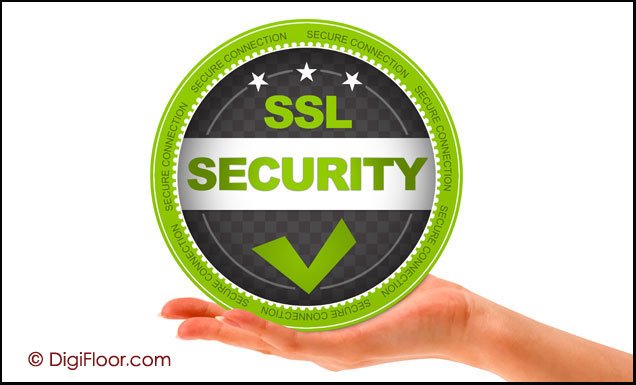Liam is a business owner dealing with crucial customer information and have seen many threats associated with it. After recent data breach and privacy issues with famous internet brands like Facebook, Liam’s concern with his online business security even increased. If you also own an online business and worried about your business network security like Liam, this article is for you.
Securing a business network is becoming increasingly complicated, with a wide variety of outside threats now obvious. Network administrators now need to keep up with a multitude of different network security techniques and strategies in order to keep on top of this problem. And the potential commercial damage of cyber crime should never be underestimated. In August 2016, Cybersecurity Ventures discovered in a major study that the value of cybercrime worldwide will touch $6 trillion by 2021.
Thus, the importance of dealing with business network security adequately should be obvious, so in this article, we will assess eight of the most valuable technologies involved.
1. Encryption
Encryption is key to the safe transmission of data from source to destination. Encryption enables information to be transformed into ciphertext, rendering it impossible to decipher. Data in hexadecimal form is scrambled multiple times, using highly complex computer algorithms, ensuring that only users with the encryption keys can ever use the information. 256-bit keys are the hardest to crack, and would literally take even the most powerful supercomputers thousands of years to break. Thus the best and easy solution is to install an SSL certificate.

You can also go with business VPN services like Avast Secureline VPN which helps in enhancing encryption and are thus invaluable tools that help companies fight back against data breaches. The reputational damage that can be done to your company is you fail to encrypt satisfactorily should not be underestimated.
2. Password Protection
System penetration often occurs due to a lack of password protection, or due to employees making mistakes with security. This means that it is important to have a sophisticated password protection policy in place, with strong passwords being an essential pillar. The policy should be put in place to implement this, as well as other aspects related to password security, such as sharing passwords.
It is also advisable to use a different password for every resource that requires one and record this in a safe, offline space. Passwords that are extremely difficult to crack should be chosen, while password management systems can also help assist with managing this issue within organization.
3. Limit Access to System
You should always consider layers of security as being central to data sensitivity, as this will ensure that people do not gain inappropriate access, and make security blunders. Limiting access effectively across an organization will involve adding different levels of protection and privilege to all staff profiles. Segmentation of roles and responsibilities should be a keystone of corporate HR policy anyway, and this can make the difference in terms of securing a system, and keeping sensitive data secure.
4. Monitoring Personal Devices
Mobile devices are an increasingly common feature of the modern office space, with technology such as BYOD considered both useful and convenient for companies. While this is no longer a USP for a business, it is something that employees undoubtedly value.
However, this also causes issues with security, with personal devices being inherently more complicated to deal with than internal IT. Considering the multitude of potential hardware and system options alone should underline the fact that the dealing with personal devices can be logistically complex.
Devices such as laptops, tablets and smartphones should be subjected to strict internal policies, which enable your network administrator to install monitoring and security software. It is also absolutely essential to ensure that automatic security updates are applied to any devices accessing your systems, as failing to patch software can be absolutely devastating.
You should also encourage your staff to change their passwords on a regular basis, even for personal devices. There is no necessity to invade personal space and privacy in some situations, and you don’t want to make your workplace into a panopticon. But you cannot allow your employees to put your network at risk with personal devices.
5. Essential Security Training
Again, while no company wishes to treat its employees as potentially suspicious, the reality is that hackers will target weak individuals when attempting to break into a system. This means that even if a technical support staff has been put in place, employees can inadvertently cause breaches if they are insufficiently trained.
You must ensure that members of staff understand how to use company resources efficiently and responsibly, and update this training on a regular basis. Training in safety and IT security should not be viewed as a one-off process, but rather an ongoing program of continual education. Active training is also to be recommended, as this engages employees in the process, while you should also investigate the possibility of hiring external trainers to deliver a package that comprises asynchronous learning and audiovisual aids.
You should also have a stringent series of penalties in place for failing to follow security protocols, and emphasis that this should be considered of the utmost importance in the office environment.
6. Plan Ahead
Attacks will almost inevitably occur. It would be nice to think that this isn’t the case, but the sheer wealth and breadth of hacking attacks now being targeted at companies means that it is basically inevitable. So instead of sticking your head in the sand, you instead need to plan for attacks and prepare your systems robustly.
In order to achieve this, it is advisable to hire an experienced IT consultant to assist with your in-house IT staff. Internal assessments and drawing up action plans will be essential. You need to have clear policies and procedures in place for any data breach, in order to minimise the potential damage of such a scenario. Responding speedily will help ensure that not too much damage is done if the worst does indeed occur, and will also enable you to get your business up and running rapidly in the event of any critical data loss.
7. Hack Yourself
Another valuable technique in understanding system vulnerabilities is to hire consulting firms and IT specialists to audit your system, and effectively hack yourself. From this process, you will receive a huge amount of valuable data, which will help you implement changes that will better protect your network and business.
As you can see most of the leading online brands run bug bounty programs where they are offering some reward to find potential backdoor to their system.
8. Up-to-Date Patching
Finally, it is absolutely essential that you patch all software on a regular basis, and keep systems completely up-to-date at all times. The recent WannaCry ransomware could actually have been prevented in many cases, with the threat vector based on a vulnerability that should have been eliminated. There really is no excuse for ignoring this particular issue, as unpatched software is one of the primary targets for hackers.
By implementing this raft of strategies, any business will give themselves a much better chance of keeping out hackers and unwanted visitors, and successfully securing their data.
Thus, the importance of dealing with business network security adequately should be obvious, so in this article, we will assess eight of the most valuable technologies involved.

